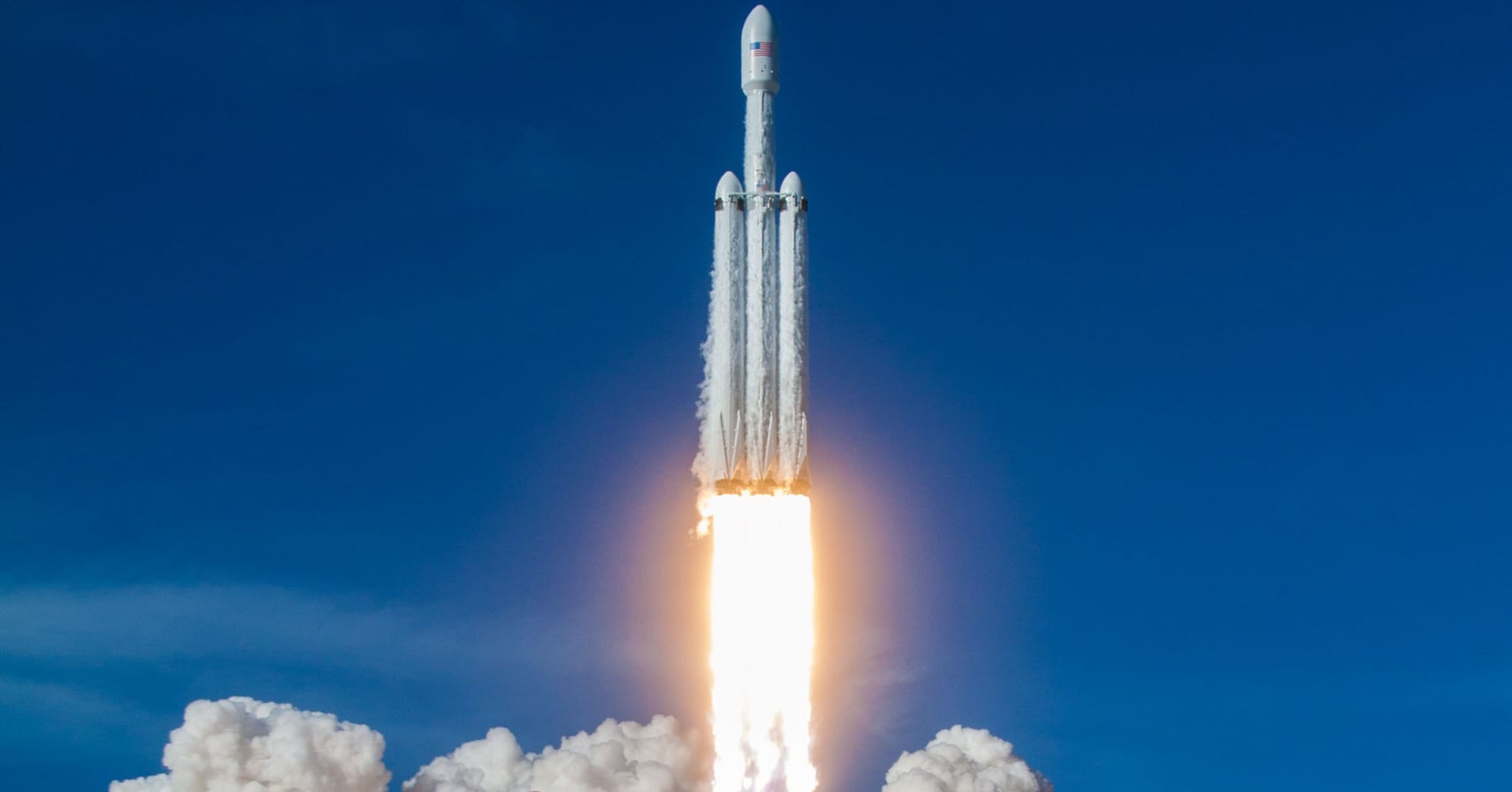
[The stream is slated to start at about 6:20 p.m. ET. Please refresh the page if you do not see a player above at that time.]
SpaceX is set to launch the company's Falcon Heavy rocket on its inaugural commercial mission on Thursday evening.
This is the second flight for Falcon Heavy, which became the most powerful rocket in use in the world after SpaceX's successful test flight in February 2018. That launch was purely demonstration — Thursday represents the first revenue-generating flight of Falcon Heavy.
Falcon Heavy will launch from SpaceX's launchpad at NASA's Kennedy Space Center in Florida. Built out of three of the company's Falcon 9 rockets, Falcon Heavy's three cores stand side by side to create a 27-engine colossus. Together, those engines create about 5.1 million pounds of thrust.
A few minutes after liftoff, the three lower "booster" stages of the rocket will separate, flip and return to Earth. The boosters on each side of the rocket will aim to land at SpaceX's concrete pads on the Florida coastline, while the larger center booster plans to attempt a landing on the company's autonomous barge in the Atlantic Ocean. Both side boosters successfully landed after SpaceX's first test flight, but the center booster ran out of fuel and crashed in the water.
@SpaceX landing tweet
The mission is called Arabsat 6A, named for the large communications satellite that Falcon Heavy is lifting. Built by Lockheed Martin for Saudi Arabian corporation Arabsat, the satellite is described by Lockheed vice president Lisa Callahan as one of "the most advanced commercial communications satellites we've ever built." Arabsat 6A was previously targeting as early as the third quarter of last year but has slipped several months.
In the months since its demonstration flight, SpaceX has seen orders for Falcon Heavy launches grow. The manifest for Falcon Heavy has grown to five contracted missions, including three commercial missions and a $130 million contract to launch the Air Force Space Command-52 satellite. The rocket cost over $500 million to develop, SpaceX CEO Elon Musk said last year.
Musk noted in a tweet Wednesday that this Falcon Heavy utilizes the upgraded "Block 5" version of SpaceX's Falcon 9 rocket, which flew for the first time last year. Musk said that this add "some risk of failure between 5% to 10%," as "the changes are unproven" even with "many good design improvements." Beyond the risk, the Block 5 upgrades add nearly 10% more thrust to Falcon Heavy compared to the demonstration mission last year, Musk added.
via IFTTT
No comments:
Post a Comment